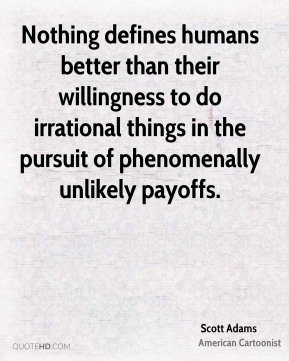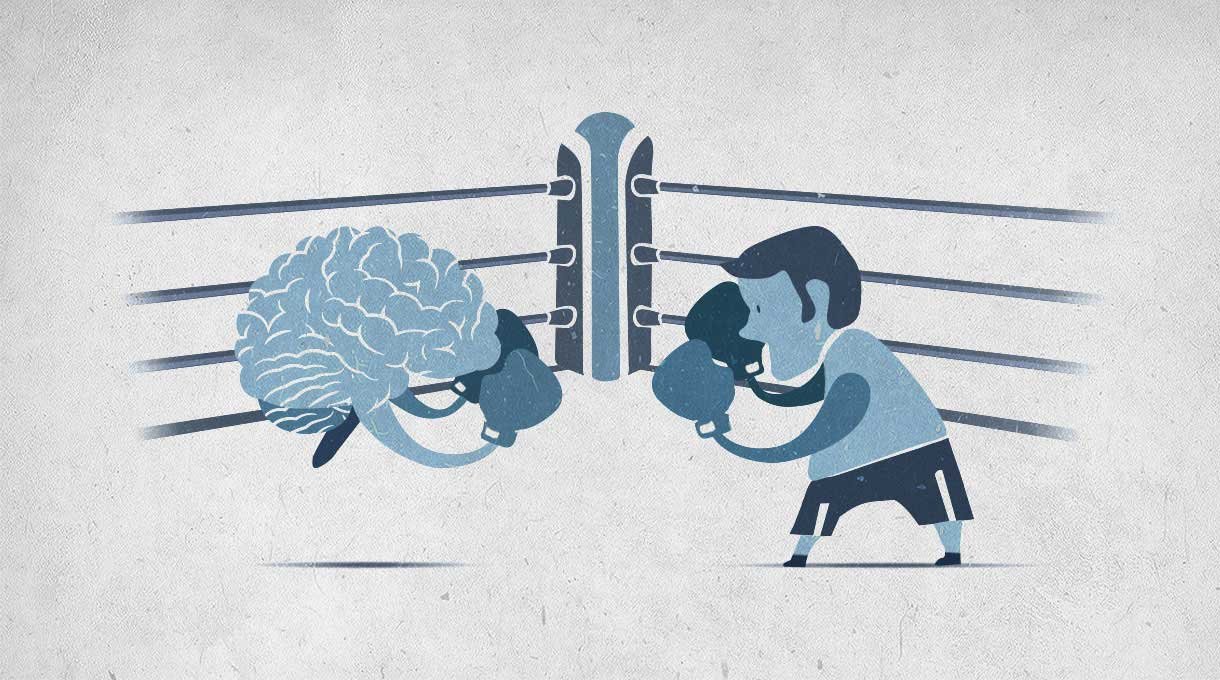In my last post, Why You Shouldn’t Start a Small Business, But Probably Will If You Were Going To, Even After Reading This,I wrote about the statistical probability of failure for entrepreneurs and why they do it anyway because of cognitive bias caused by optimism.
As for my own cognitive bias, I would have to think back to my undergraduate degree in Social Sciences.
While completing the course work, I had several classes in Psychology, Sociology, Government, Economics, and History.
To name a few…
Mostly I think I wanted to study humans because I was socially awkward as a kid and I wanted to better understand people.
After years spent studying these topics I walked away having only learned one thing:
Humans are irrational.
“The question of when an approach or a movement got its start is often difficult to answer, but the origin of what is now known as behavioral economics can be specified precisely. In the early 1970s, Richard Thaler, then a graduate student in the very conservative economics department of the University of Rochester, began having heretical thoughts. Thaler always had a sharp wit and an ironic bent, and as a student he amused himself by collecting observations of behavior that the model of rational economic behavior could not explain. He took special pleasure in evidence of economic irrationality among his professors, and he found one that was particularly striking.” - from Thinking, Fast and Slow by Daniel Kahneman
Turns out I am not the only one to notice this.
The thing is this was never discussed in my undergraduate program because it wouldn’t have helped.
“Most graduate students in economics have heard about prospect theory and loss aversion, but you are unlikely to find these terms in the index of an introductory text in economics. I am sometimes pained by this omission, but in fact it is quite reasonable, because of the central role of rationality in basic economic theory. The standard concepts and results that undergraduates are taught are most easily explained by assuming that Econs do not make foolish mistakes. This assumption is truly necessary, and it would be undermined by introducing the Humans of prospect theory, whose evaluations of outcomes are unreasonably short-sighted.
There are good reasons for keeping prospect theory out of introductory texts. The basic concepts of economics are essential intellectual tools, which are not easy to grasp even with simplified and unrealistic assumptions about the nature of the economic agents who interact in markets. Raising questions about these assumptions even as they are introduced would be confusing, and perhaps demoralizing.” - from Thinking, Fast and Slow by Daniel Kahneman
It turns out that without the basic assumption that we could predict human behavior, predicting human behavior is foolishness.
No wonder they forgot to mention this.

Image Source
Fastforward to now and I find myself with overwhelming confirmation bias that I was right all along.
In several economics classes you may have seen the following “indifference map”:
Image Source
Long story short, your indifference actually isn’t equal because you think about where you currently are located (aka your “reference point” or anchor) and compare that to the new options.
“The omission of the reference point from the indifference map is a surprising case of theory-induced blindness, because we so often encounter cases in which the reference point obviously matters. In labor negotiations, it is well understood by both sides that the reference point is the existing contract and that the negotiations will focus on mutual demands for concessions relative to that reference point. The role of loss aversion in bargaining is also well understood: making concessions hurts.” - from Thinking, Fast and Slow by Daniel Kahneman
Enter Richard Thaler, “The Father” Of Behavioral Economics.
“Richard H. Thaler studies behavioral economics and finance as well as the psychology of decision-making which lies in the gap between economics and psychology. He investigates the implications of relaxing the standard economic assumption that everyone in the economy is rational and selfish, instead entertaining the possibility that some of the agents in the economy are sometimes human. Thaler is the director of the Center for Decision Research, and is the co-director (with Robert Shiller) of the Behavioral Economics Project at the National Bureau of Economic Research.” Source
Thaler astutely noticed that standard economic theory broke down when it came to his Professor's preferences in fine wine and his behavioral differences in his willingness to buy and sell it.
“Chance intervened when Thaler met one of our former students at a conference and obtained an early draft of prospect theory. He reports that he read the manuscript with considerable excitement, because he quickly realized that the loss-averse value function of prospect theory could explain the endowment effect and some other puzzles in his collection. The solution was to abandon the standard idea that Professor R had a unique utility for the state of having a particular bottle. Prospect theory suggested that the willingness to buy or sell the bottle depends on the reference point—whether or not the professor owns the bottle now. If he owns it, he considers the pain of giving up the bottle. If he does not own it, he considers the pleasure of getting the bottle. The values were unequal because of loss aversion: giving up a bottle of nice wine is more painful than getting an equally good bottle is pleasurable.” - from Thinking, Fast and Slow by Daniel Kahneman
“This was the explanation of the endowment effect that Thaler had been searching for. And the first application of prospect theory to an economic puzzle now appears to have been a significant milestone in the development of behavioral economics.” - from Thinking, Fast and Slow by Daniel Kahneman
Thus why Thaler is considered one of the “fathers of behavioral economics”.

Follow me @strangerarray and donate because I am not your father.
Please check out my recent post:
P.S. Before you go, do you have Student Loans and are looking for ways to save money?
I recommend Credible.
Use my link to get $200 !


